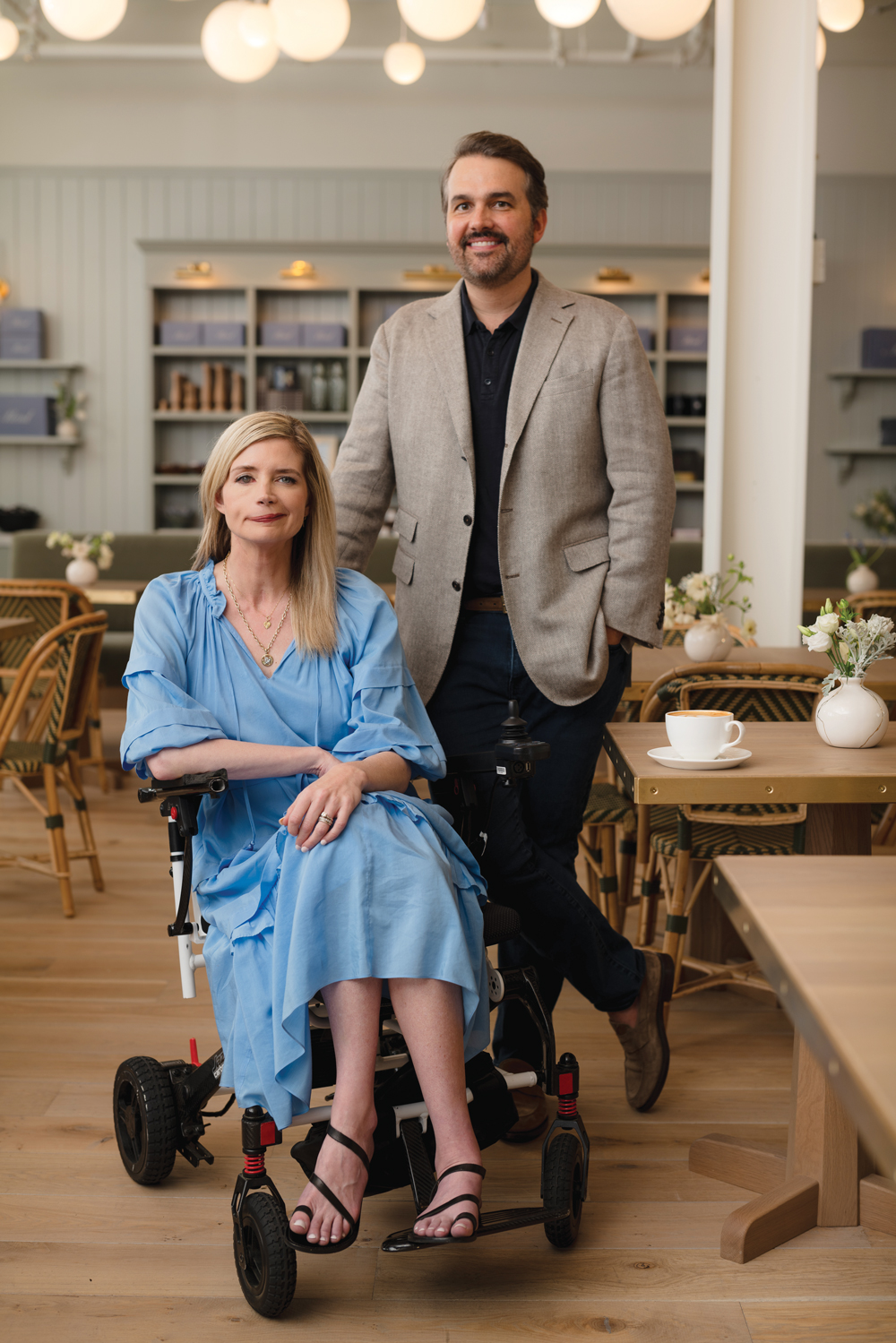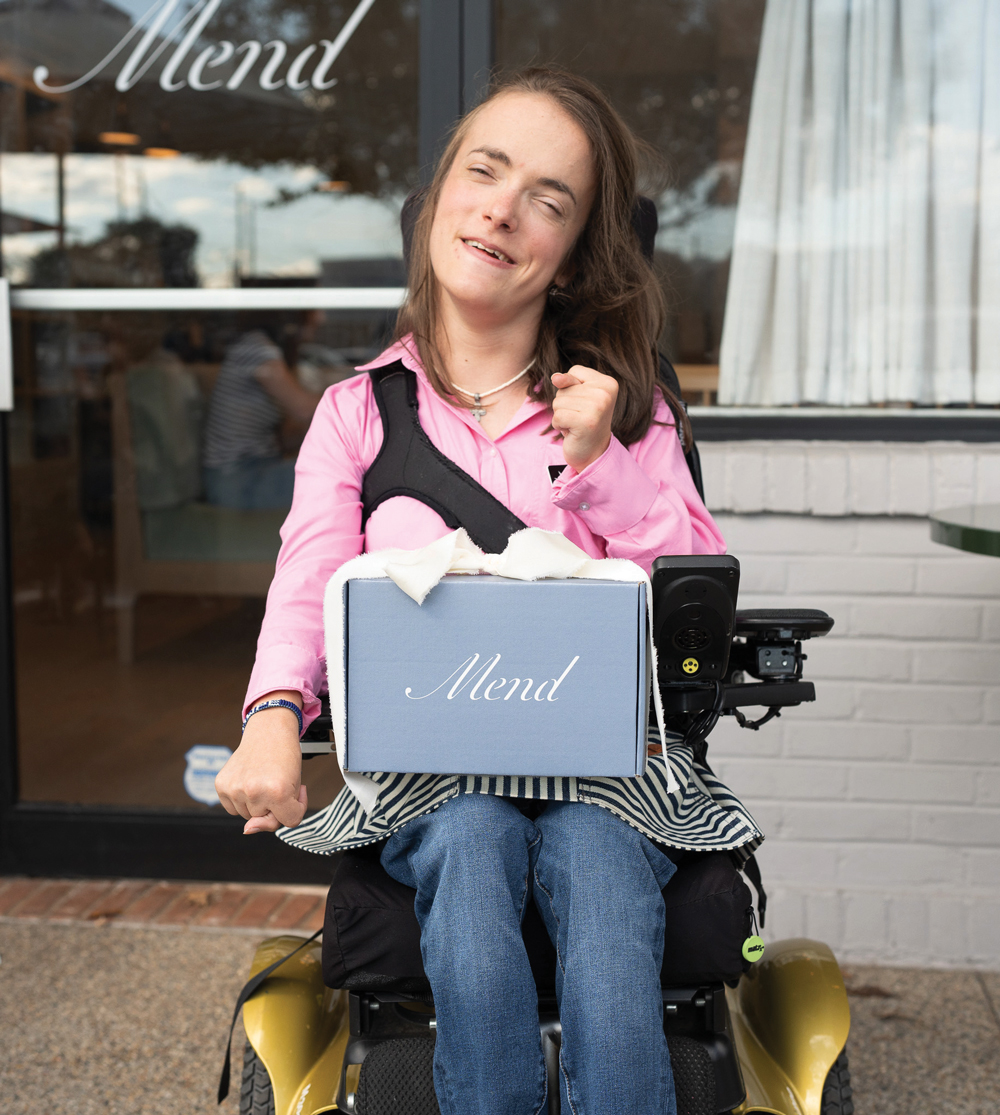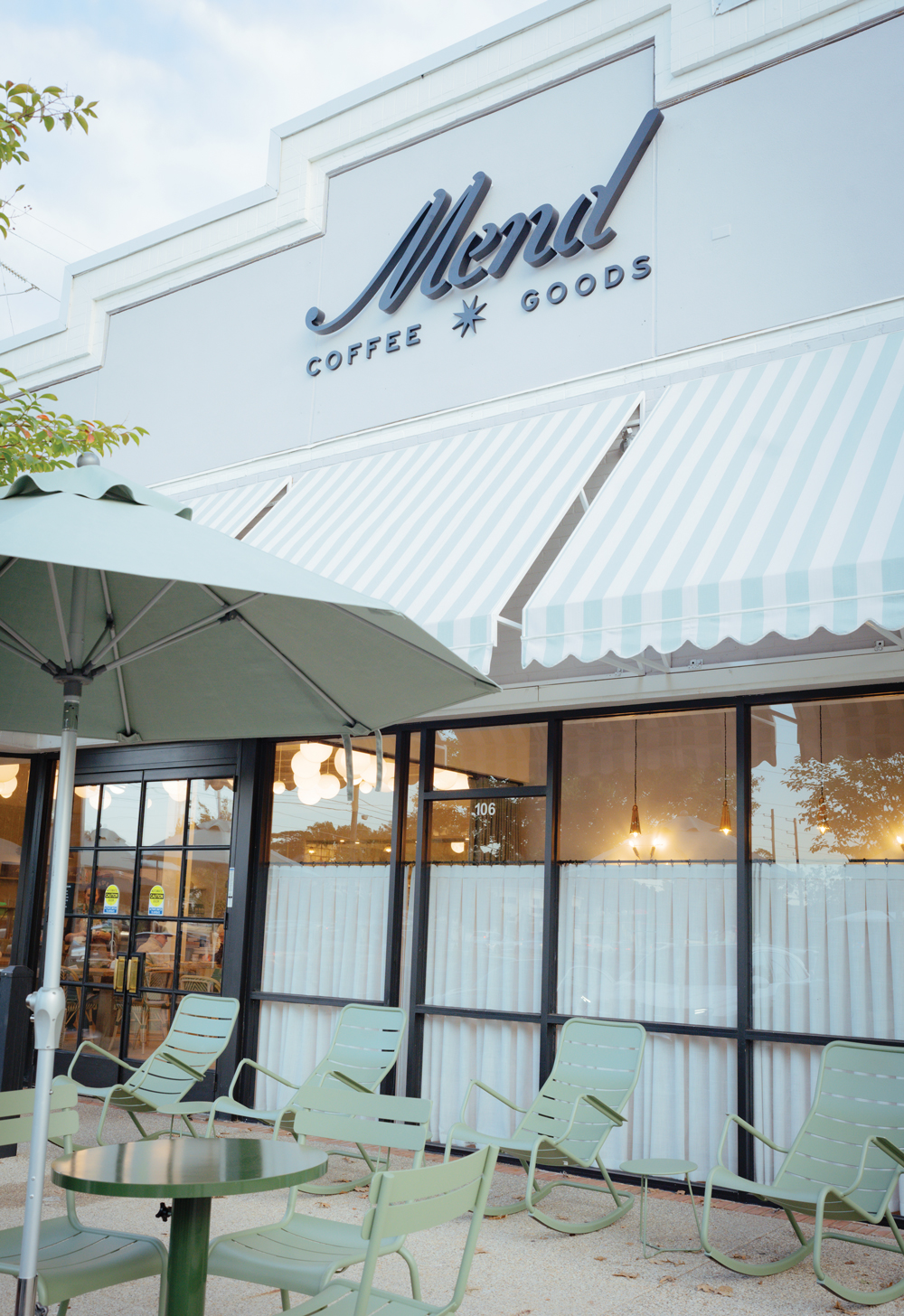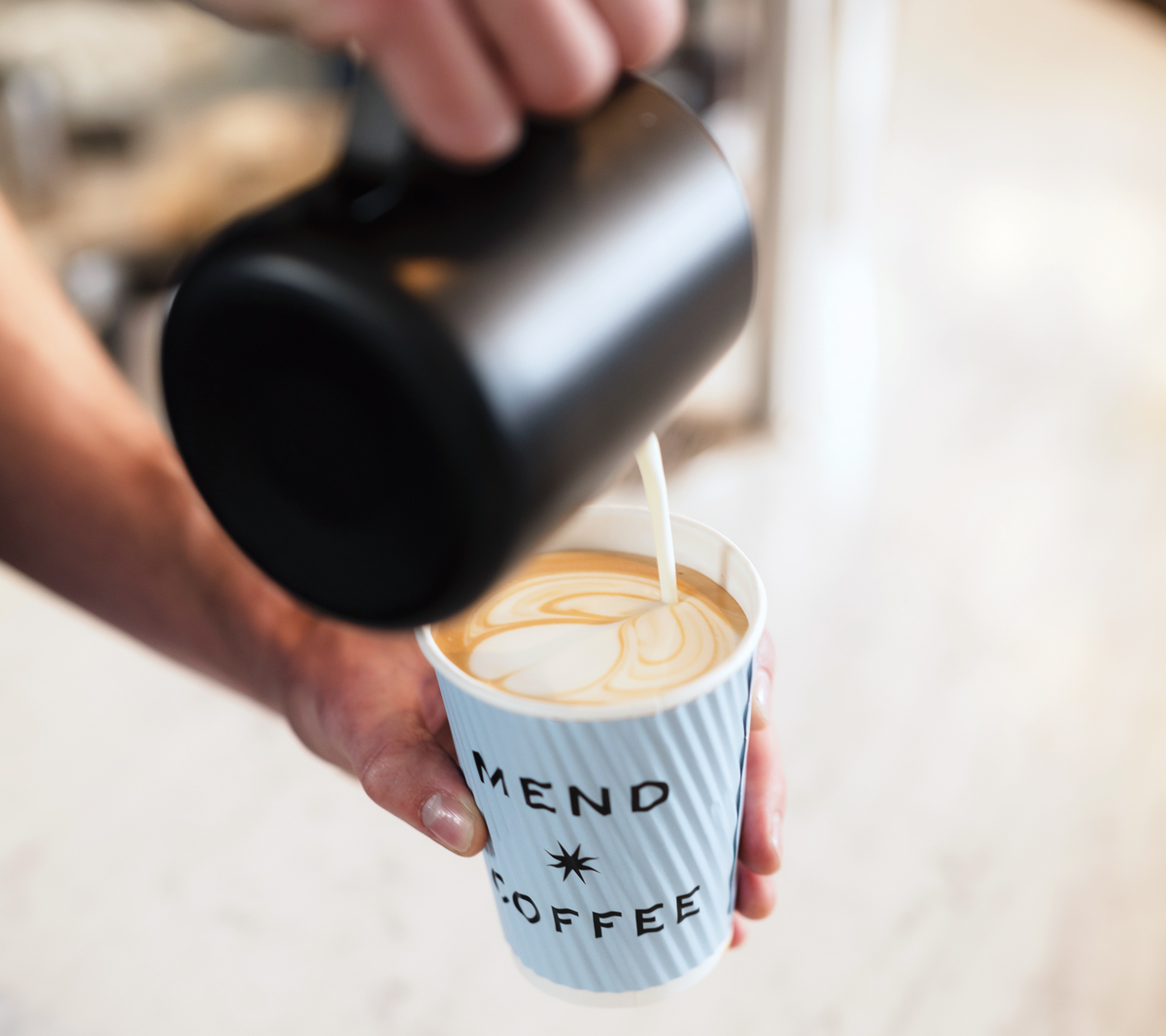
Photograph by Bryan Johnson
From the parking lot, Mend Coffee & Goods looks like a typical upscale Buckhead coffee shop. The patio is bustling, and wide windows beckon you inside. Come closer and Bentley-Grace Hicks welcomes you from her wheelchair, while Griffin Brown rolls around collecting dirty dishes. He doesn’t have use of his arms due to cerebral palsy, so his mother outfitted his motorized chair with shelves to allow him to transport used dishes to the kitchen. About half of the Mend staff is disabled, and the cafe is one of the most accessible in Atlanta.
The 2,400-square-foot space looks straight out of a Restoration Hardware catalogue, with soft blue, gray, and sage green walls balancing a marble bar top, oak floors, and brass fixtures. The menu is traditional, featuring Bellwood Coffee, Golda Kombucha, pastries from Alon’s Bakery & Market, and breakfast and lunch items made in-house (think avocado toast, bacon and Swiss quiche, and chicken salad sandwiches). Light jazz plays in the background, and the soothing scent of Mend’s signature candle greets your nose as you enter.
But it’s the carefully crafted details invisible to those outside the disabled community that make the biggest impact. All doors—including the bathrooms—are automated. Tables swivel up and down to meet the height requirements of wheelchair users. The extra-large restroom includes an adult changing table. A private room doubles as a sensory-sensitive space to avoid overstimulation.

Photograph by Becca Cruz
Founders Jay and Katherine Wolf greet each person by name—staff and customers alike. They’re like celebrities here, a place they created to bring together the interabled community (meaning a group of people with different types of abilities, says Jay) and provide respite, hope, and healing. Katherine experienced a massive brain stem stroke in April 2008, when she was just 26 years old. She underwent 12 surgeries, spending 40 days in the ICU and a year and a half in rehab. “I should have died,” she says. Though she survived, her life, and the lives of her family members, was irrevocably changed, as the right side of her body is partially paralyzed, among other impairments.
Rather than focus on Katherine’s limitations, she and Jay, who are also raising two sons, now ages 9 and 17, created Hope Heals, a nonprofit that supports the interabled community and reframes the experience of being disabled. They host four free one-week camp sessions each summer, as well as a weekend retreat in the fall, inviting families to connect and recharge with bonding activities and faith-based sessions.

Photograph by Becca Cruz

Photograph by Thomas Swofford
“It’s a sacred space, an opportunity for people who may have felt left behind in their communities to be together,” Katherine says. She also speaks at conferences around the country and has written three books sharing her story: Suffer Strong, Hope Heals and, the latest, Treasures in the Dark.
All the while, she and Jay operate Mend Coffee & Goods, which they opened in 2024. It features a retail section with ethically sourced items designed to make people feel good. There’s honey lavender sweets from Wildflower Caramels, Mo&Co Home candles, tumblers, greeting cards, bath bombs, and the best-selling “Hope” sweatshirt. Selling these products, as well as renting out Mend for private events, helps support the Hope Heals mission.
“We think about how we can add value into this for this hugely underrepresented population,” Jay says. “How do we create a different kind of story that there’s beauty here, and be a part of showcasing that to the world?”
This article appears in our March 2025 issue.
Advertisement




